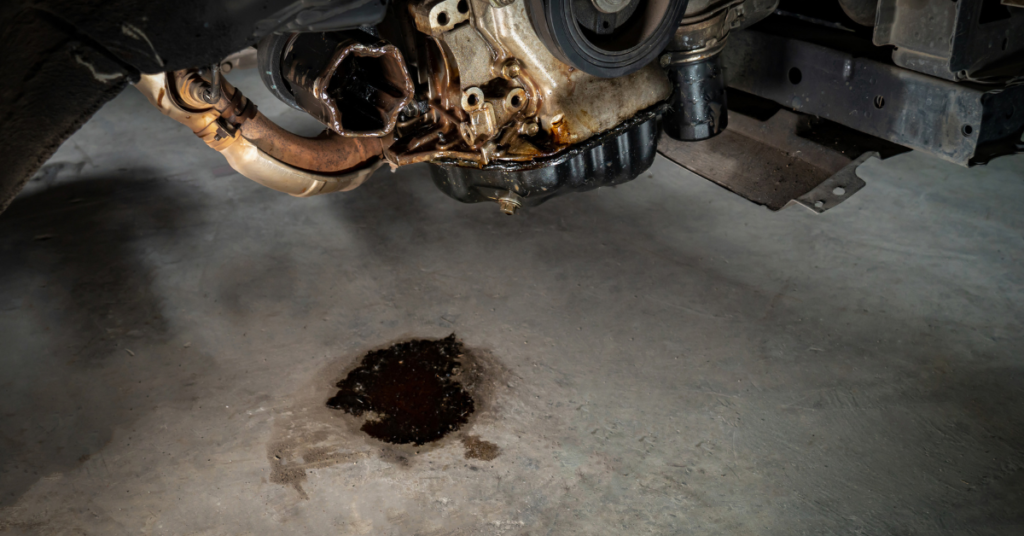
The P0305 Dodge trouble code refers to a specific issue found in Dodge vehicles, specifically related to the engine’s misfire detection system.
When this trouble code appears, it indicates that Cylinder 5 is experiencing a misfire. It is important to address this issue promptly to ensure optimal engine performance and prevent potential damage.
Recognizing the similarities in misfire challenges across different cars provides you with a roadmap to effectively diagnose and tackle cylinder misfires.
In this article, we will delve into the causes, symptoms, and possible solutions for the P0305 code in Dodge vehicles.
Contents
Symptoms of P0305 Dodge Code
When Cylinder 5 misfires, several noticeable symptoms may arise. It is crucial to pay attention to these signs and address the issue promptly to prevent further engine damage.
Some common symptoms associated with the P0305 code include:
Engine Misfire
One of the primary symptoms of the P0305 code is an engine misfire. This misfire can lead to poor acceleration, rough idling, and overall decreased engine performance.
An engine misfire occurs when the air-fuel mixture in the cylinder fails to ignite properly, resulting in the engine not running smoothly.
Check Engine Light
The illumination of the check engine light is a common indicator of a misfire issue. When the P0305 code is detected, the check engine light will usually be triggered.
This serves as a warning sign for the driver to take action and have the vehicle inspected by a qualified technician.
Engine Vibrations

A misfire in Cylinder 5 can result in noticeable vibrations throughout the vehicle, especially when the engine is under load or at idle. These vibrations can be felt through the steering wheel, floorboards, or even the entire body of the vehicle.
They are typically more pronounced when the engine is working harder, such as during acceleration or climbing a hill.
Decreased Fuel Efficiency
If left unaddressed, a misfire in Cylinder 5 can lead to a decrease in fuel efficiency, causing more frequent trips to the gas pump. This is because the engine is not operating efficiently, resulting in wasted fuel.
Monitoring your fuel consumption and noticing a sudden decrease in mileage can be an indication of a misfire issue.
Possible Causes of P0305 Code
Now that we have discussed the symptoms associated with the P0305 code, let’s explore some of the potential causes for this issue in Dodge vehicles:
Ignition System Issues
Faulty ignition components such as spark plugs, ignition coils, or spark plug wires can disrupt the proper combustion process, leading to a misfire in Cylinder 5.
Over time, spark plugs can become worn-out, resulting in a weak spark that fails to ignite the air-fuel mixture. Similarly, damaged ignition coils or spark plug wires can cause a loss of electrical current, affecting the ignition process.
Fuel System Problems
A clogged fuel injector or a malfunctioning fuel pressure regulator can result in an inadequate fuel supply to Cylinder 5, causing a misfire. A clogged fuel injector can restrict the flow of fuel, leading to an imbalance in the air-fuel mixture.
On the other hand, a malfunctioning fuel pressure regulator can cause incorrect fuel pressure, affecting the combustion process.
Vacuum Leaks
Air leaks in the intake manifold or vacuum hoses can introduce additional air into the combustion chamber, disrupting the air-fuel mixture and leading to a misfire.
These leaks can occur due to worn-out gaskets, cracked hoses, or loose connections. The excess air can cause an imbalance in the fuel mixture, resulting in a misfire.
Mechanical Issues
Worn piston rings, damaged valves, or a faulty head gasket can cause a loss of compression in Cylinder 5, resulting in a misfire. Compression is essential for the proper functioning of the engine, as it ensures that the air-fuel mixture is properly ignited.
If there is a loss of compression in Cylinder 5, the combustion process will be affected, leading to a misfire.
Engine Control Module (ECM) Malfunction
In some instances, a malfunctioning ECM can incorrectly detect a misfire in Cylinder 5, triggering the P0305 code even if there is no actual misfire. The ECM is responsible for monitoring various engine parameters and controlling the ignition timing and fuel delivery.
If the ECM is not functioning properly, it may provide inaccurate readings or signals, leading to false misfire detections.
Diagnosing and Resolving the P0305 Code
Addressing the P0305 code requires a systematic diagnostic approach to identify and resolve the underlying issue. Here are the steps you can take to diagnose and fix the problem:
Inspect Ignition System
Begin by inspecting the ignition system components for any signs of damage, such as worn-out spark plugs or frayed spark plug wires. Replace any faulty components and ensure the spark plugs are properly gapped.
Additionally, check the ignition coils for cracks or signs of malfunction. A thorough inspection of the ignition system can help identify any issues that may be causing the misfire.
Check Fuel System
Examine the fuel system for clogged fuel injectors or a malfunctioning fuel pressure regulator. Clean or replace clogged injectors and test the fuel pressure to ensure it meets the manufacturer’s specifications.
Additionally, check the fuel pump for proper functioning, as a weak fuel pump can also contribute to a misfire. Ensuring a proper fuel supply to Cylinder 5 is crucial for resolving the misfire.
Detect Vacuum Leaks

Perform a thorough inspection of the intake manifold and vacuum hoses for any signs of leaks or cracks. Repair or replace any damaged components to resolve any potential air leaks.
Additionally, check the intake manifold gaskets for wear or damage, as they can also contribute to vacuum leaks. Using a smoke machine or a spray bottle with soapy water can help identify the exact location of the leak.
Conduct Compression Test
If the issue persists, perform a compression test to check the cylinder compression. Low compression in Cylinder 5 indicates a mechanical issue that will require further investigation and repair.
This test involves removing the spark plug from Cylinder 5 and attaching a compression gauge to the spark plug hole. By rotating the engine, you can measure the compression pressure in the cylinder.
Comparing the compression readings with the manufacturer’s specifications will help determine if there is a mechanical issue causing the misfire.
Scan ECM for Errors
Use an OBD-II scanner to retrieve any additional error codes and check for ECM malfunctions. If necessary, reset the ECM and see if the code reappears. If it does, further diagnostics may be needed to pinpoint the problem.
In some cases, updating the ECM software or replacing the ECM may be necessary to resolve the misfire issue.
Conclusion
In summary, the P0305 code in Dodge vehicles indicates a misfire in Cylinder 5. Promptly addressing this issue is crucial to maintain optimal engine performance.
By understanding the symptoms, potential causes, and diagnostic steps outlined in this article, you can effectively diagnose and resolve the P0305 code in your Dodge vehicle.
A P0305 misfire in your car is just the beginning. As you navigate through the intricacies of this code, it becomes evident that understanding how P0306 misfires occur in other vehicles is equally crucial. It’s like decoding a shared language of engine troubles across different car makes.
Remember to consult a professional technician if you are unsure or need assistance with the diagnostic process to ensure accurate and efficient repairs.
FAQ
What is the P0305 code in Dodge vehicles?
The P0305 code indicates a misfire in Cylinder 5 of the engine in Dodge vehicles.
What are the symptoms of the P0305 code?
Some common symptoms of the P0305 code include engine misfire, check engine light illumination, engine vibrations, and decreased fuel efficiency.
What are the possible causes of the P0305 code?
The possible causes of the P0305 code in Dodge vehicles include ignition system issues, fuel system problems, vacuum leaks, mechanical issues, and ECM malfunction.
How can the P0305 code be diagnosed and resolved?
To diagnose and resolve the P0305 code, you can inspect the ignition system, check the fuel system, detect vacuum leaks, conduct a compression test, and scan the ECM for errors.
It is recommended to consult a professional technician for accurate and efficient repairs.



